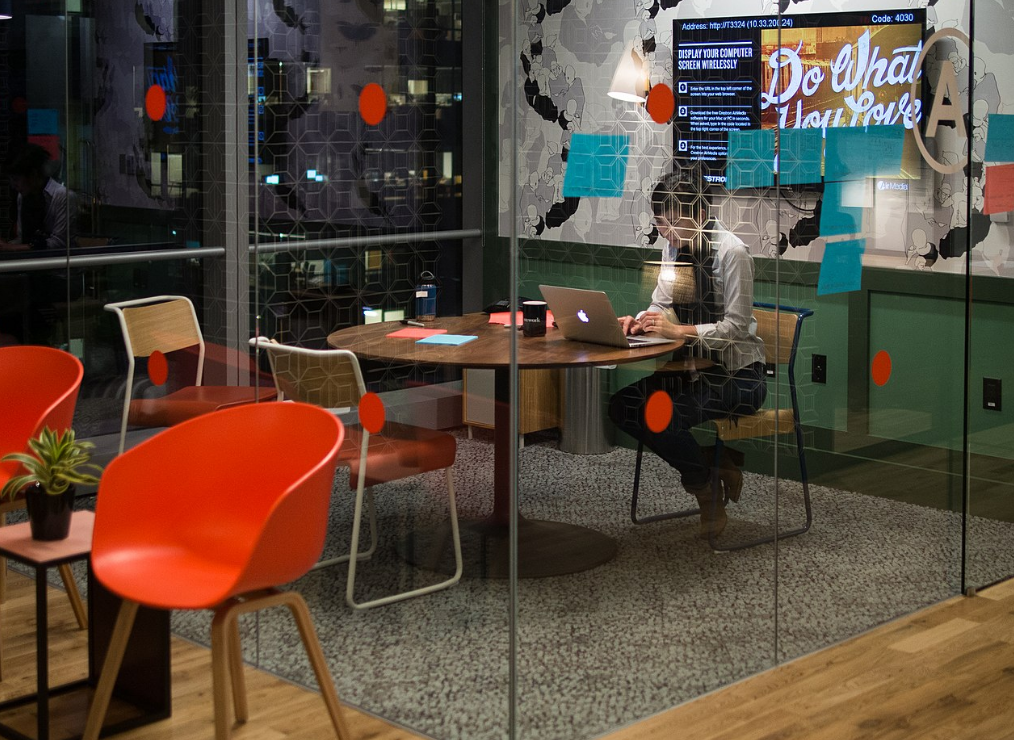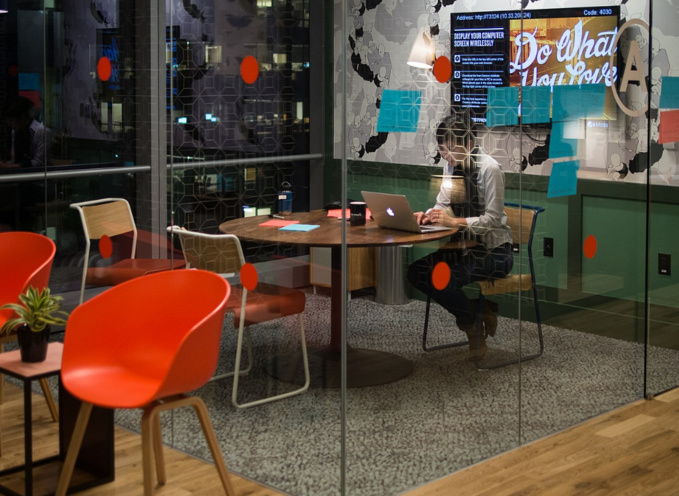The demand for a flexible workspace, when an employee is not assigned a workplace, is growing, according to a study by consulting company Knight Frank.
The study was attended by senior executives from 120 international companies, which employ more than 3.5 million people all over the world. The total area of offices of these companies is approximately 233 million square meters, which is equivalent to all office space in Central London.
According to Knight Frank’s survey, more than two thirds of global corporations (69%) plan to introduce a flexible workspace model over the next three years. According to experts, such premises create a friendlier working environment and provide an opportunity for rapid expansion or reduction of space in accordance with market conditions.
Most global corporations still occupy office space under the traditional rental model. Two thirds of the companies surveyed by Knight Frank reported that co-working and flexible offices account for up to 5% or less of the total area. Less than 7% say that a flexible workspace exceeds one fifth.
However, the market is indeed growing rapidly and has great potential for development. Cushman & Wakefield data on the growth rate of flexible office spaces suggest that in the next five years the growth of the flexible office market in Europe will reach 30%, and the cumulative increase over the period will be over 7 million square meters. By 2023, the volume will have reached about 10 million square meters.
The overwhelming majority of respondents (75%) stated that personal productivity associated with well-being and happiness will increase as they move to a model that is more in line with modern business structures.
“This study emphasizes that the decade of global economic uncertainty has changed the way most of the largest companies in the world view the workspace. The number of flexible offices has grown rapidly over the past five years, mainly due to startups and freelancing. However, this is just the tip of the iceberg compared to the upcoming demand from companies around the world, which we expect over the next three years,” says Lee Elliott, global tenant research manager at Knight Frank.
Consultants and real estate brokers have already begun to adapt to these trends. Practically each company has organized special departments to research the market of flexible office spaces. With the rapid growth of local operators, the entry of international players such as WeWork and RENT24, and the growing demand for flexible offices from corporations, consultants and brokers expect an increase in the interest of building owners to launch their own co-working sites and partner projects.
source: forbes.com
The study was attended by senior executives from 120 international companies, which employ more than 3.5 million people all over the world. The total area of offices of these companies is approximately 233 million square meters, which is equivalent to all office space in Central London.
According to Knight Frank’s survey, more than two thirds of global corporations (69%) plan to introduce a flexible workspace model over the next three years. According to experts, such premises create a friendlier working environment and provide an opportunity for rapid expansion or reduction of space in accordance with market conditions.
Most global corporations still occupy office space under the traditional rental model. Two thirds of the companies surveyed by Knight Frank reported that co-working and flexible offices account for up to 5% or less of the total area. Less than 7% say that a flexible workspace exceeds one fifth.
However, the market is indeed growing rapidly and has great potential for development. Cushman & Wakefield data on the growth rate of flexible office spaces suggest that in the next five years the growth of the flexible office market in Europe will reach 30%, and the cumulative increase over the period will be over 7 million square meters. By 2023, the volume will have reached about 10 million square meters.
The overwhelming majority of respondents (75%) stated that personal productivity associated with well-being and happiness will increase as they move to a model that is more in line with modern business structures.
“This study emphasizes that the decade of global economic uncertainty has changed the way most of the largest companies in the world view the workspace. The number of flexible offices has grown rapidly over the past five years, mainly due to startups and freelancing. However, this is just the tip of the iceberg compared to the upcoming demand from companies around the world, which we expect over the next three years,” says Lee Elliott, global tenant research manager at Knight Frank.
Consultants and real estate brokers have already begun to adapt to these trends. Practically each company has organized special departments to research the market of flexible office spaces. With the rapid growth of local operators, the entry of international players such as WeWork and RENT24, and the growing demand for flexible offices from corporations, consultants and brokers expect an increase in the interest of building owners to launch their own co-working sites and partner projects.
source: forbes.com



















